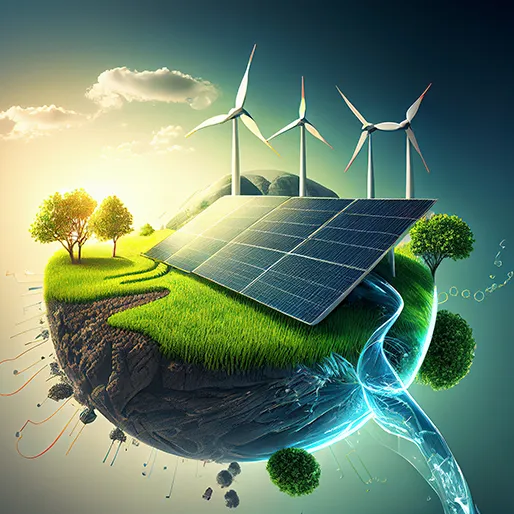Introduction
Water scarcity is a pressing global issue that affects millions of people around the world. The increasing demand for water due to population growth, industrialization, and climate change has put a strain on our limited water resources. However, there is hope in the form of renewable water solutions that are helping to break the cycle of water scarcity and ensure a sustainable water supply for future generations.
The Impact of Water Scarcity
Water scarcity has far-reaching consequences, affecting not only human health but also agriculture, industry, and the environment. In many parts of the world, people struggle to access clean and safe drinking water, leading to waterborne diseases and other health issues. Agriculture, which accounts for the largest share of global water usage, is also heavily impacted by water scarcity, leading to crop failures and food insecurity. Furthermore, industries that rely on water for their operations face challenges in maintaining production and meeting demand.
Renewable Water Solutions
Renewable water solutions offer a sustainable way to address water scarcity by harnessing natural processes to provide clean and safe water. These solutions include rainwater harvesting, desalination, water recycling, and groundwater recharge. By utilizing these renewable water sources, communities can reduce their dependence on finite water resources and ensure a reliable water supply for the future.
Rainwater Harvesting
Rainwater harvesting is a simple yet effective way to capture and store rainwater for domestic and agricultural use. This method involves collecting rainwater from rooftops or other surfaces and storing it in tanks or reservoirs for later use. Rainwater harvesting helps to reduce the demand for groundwater and surface water, making it a sustainable water source for communities facing water scarcity.
Desalination
Desalination is a process that removes salt and other impurities from seawater to produce clean and safe drinking water. While desalination is energy-intensive and costly, advances in technology have made it more efficient and affordable in recent years. Desalination plants are now being used in coastal regions to provide a reliable source of freshwater for communities facing water scarcity.
Water Recycling
Water recycling, also known as water reclamation, is the process of treating wastewater to remove contaminants and make it suitable for reuse. This method helps to conserve water resources by recycling wastewater for irrigation, industrial processes, and other non-potable uses. Water recycling is becoming increasingly popular in urban areas where water scarcity is a growing concern.
Groundwater Recharge
Groundwater recharge is a natural process that replenishes underground aquifers with water from surface sources such as rivers, lakes, and rainfall. By enhancing groundwater recharge through artificial methods such as infiltration basins and recharge wells, communities can boost their water supply and reduce the risk of groundwater depletion. Groundwater recharge is a sustainable solution for areas where groundwater is the primary source of water.
The Importance of Renewable Water Solutions
Renewable water solutions play a crucial role in addressing global water scarcity and ensuring a sustainable water supply for future generations. By tapping into renewable water sources such as rainwater, seawater, and wastewater, communities can reduce their reliance on finite water resources and minimize the impact of water scarcity on human health, agriculture, industry, and the environment. Investing in renewable water solutions is key to breaking the cycle of water scarcity and building resilience against future water challenges.
Conclusion
Water scarcity is a complex and urgent issue that requires innovative solutions to ensure a sustainable water supply for all. Renewable water solutions offer a promising way to tackle global water scarcity by harnessing natural processes and technologies to provide clean and safe water for communities in need. By investing in rainwater harvesting, desalination, water recycling, and groundwater recharge, we can break the cycle of water scarcity and build a more resilient and water-secure future for all.
#Breaking #Cycle #Renewable #Water #Solutions #Tackling #Global #Water #Scarcity
